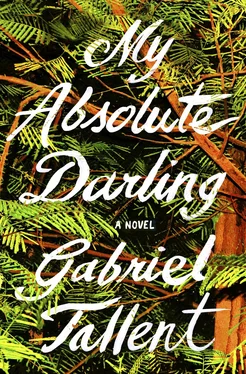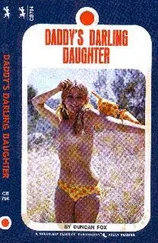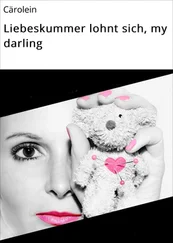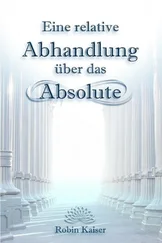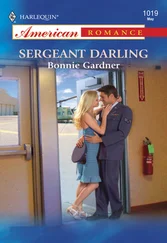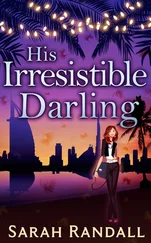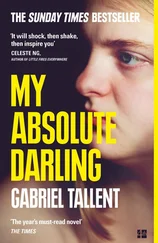It doesn’t happen. The small, oval result window shows a single pink line. The test is negative. She triggers the shotgun’s weapon light again and pans it over the test. The light is so bright, so harsh, that it is hard to see. It’s the same. Negative. She feels no relief. It may not even be true, it may just be too early. But if it is true, she thinks, if it could’ve happened to me and it did not— She stops. You got lucky, she thinks. Don’t squander that. She is shaking. Her face is clenching into an expression she does not understand. She lowers herself until she is sitting, splay-legged in the cold water, her hands grasped around herself, broken-feeling and empty.
Turtle is sitting cross-legged on the floor cleaning the Remington 870 when Martin comes out of the bathroom and says, “Goddamn it, kibble,” and then he stops and looks at her as if seeing her for the first time. He says, “You’re cleaning the gun again?”
Turtle doesn’t look up.
“You could fire that thing all day every day for years before it would fail,” he says. “That thing is clean enough. Besides. When have you even fired that thing last? It’s not dirty. You can’t’ve gotten it dirty.”
Turtle still doesn’t look up.
“It’s like a fixation with you, isn’t it,” he says, and Turtle sighs and looks up.
“Don’t you look at me like that,” he says.
She says, “What do you care?”
“I don’t give a shit,” he says, “it’s just you’re always cleaning, cleaning, cleaning, and it’s like, Jesus, there’s no point. Just let it be. Guns get dirty, that’s just how it is.”
“What were you going to say?”
He walks into the kitchen and takes a beer from the fridge. He seems to want to say something and to be unable to say it, or perhaps unable to frame it in his own mind.
“It doesn’t bother me,” he says, “I don’t care. It’s just—”
Turtle waits.
Martin gestures angrily to the bathroom. He says, “I don’t know what the problem is, but will you please tell Cayenne to get her ass in the tub?”
Turtle rises, collects her cleaning kit and gun and throws the towel over her shoulder and walks to the bathroom and finds Cayenne in the middle of the room, arms crossed, scowling ferociously, the bathtub filling with green-blue water, the porcelain bottom laddered with silt.
“I don’t want to take a bath,” she tells Turtle.
“Yeah?” Turtle says, and glances at the black widow in her web behind the shower fixtures, near the recessed water heater. She is almost the color of black leather, with a bulbous abdomen and slender, jointed needles for legs, stomping on her web menacingly, making the whole structure tremble. The red hourglass is clearly visible. Her web is tangled and haphazard, filled with the husks of dead creatures. Turtle sets her things on the floor. She walks to the wall and reaches into the hole, breaking the web strands with a soft crackling sound like carbonation. Cayenne says, “No, Turtle! Wait! Don’t!”
Turtle draws her hand out of the hole. Her fingers are netted with old spider silk. Cayenne puts her hands to her face and says, “Leave her, please leave her.”
The spider races around her broken web.
Cayenne says, “Leave her.”
Turtle sits down beside the gun.
“Stay here?” Cayenne says.
In answer, Turtle lays out the towel and the gun across it, opens the wooden chest of the cleaning kit. She dismounts the barrel and lays it across the towel.
“I thought you were worried about her,” Turtle says.
“Yeah,” Cayenne says, cranking on the hot water. “Yeah, I am. How old is she?”
“Almost two years,” Turtle says. “They don’t usually live this close to the coast. She came in some oak firewood Marty bought from Comptche.”
“Martin’s really fond of her,” Cayenne says.
“Maybe ‘fond’ is not the word.”
Cayenne goes nervously to the tub and cranks on the hot water. Then, looking sometimes at the agitated spider, she begins taking off her pants. Turtle starts to clean the barrel with a copper twelve-gauge brush.
“Turtle,” Cayenne says.
“Hm?” Turtle drives the plunger through the barrel.
“Turtle?”
“Yeah?” Turtle looks up.
“Nothing,” Cayenne says, shaking her head. She climbs into the tub and sits down in it, puts her chin over the edge and stares at Turtle.
“Turtle,” Cayenne says.
“Hm?” Turtle says.
“What are these mushrooms called?”
Turtle sits, the barrel spanning her lap. Cayenne is studying the mushrooms growing on the windowsill.
“Tell me about them,” Turtle says.
“But what are they called?”
“What does it matter what they’re called?”
The girl sits thinking for a long time, hmming and hawing to herself, making small conspicuous noises of observation, and then she turns to Turtle, and then to the mushrooms again. Turtle works the plunger through the barrel.
“Maybe I want to write a book about you,” Cayenne says, “and I want to say how you had a bathroom, and the window was covered in mushrooms, and they were such-and-such mushrooms, and then I’d need to know the name of them.”
Turtle says, “You’re not writing a book.”
“But I might .”
“It doesn’t matter, their name,” Turtle says.
“They have little shutters,” Cayenne says.
“Hm,” Turtle says.
“What are those called?” Cayenne tries.
“Little shutters.”
“That’s not what they’re called.”
“What does it matter what they’re called?”
“It matters to me,” Cayenne says. “Are they called blinds?”
“You and I, we can call them blinds.”
“Louvers,” Cayenne says.
“Did you just make that up?”
“It’s a kind of blind,” Cayenne says. “They have them in castles.”
“Ah.”
“But what’s their name ?”
“Well, what else do they look like? What are they for?”
Cayenne scowls in annoyance. She pushes up her nose and sticks out her tongue at Turtle and Turtle bends again over the barrel.
“Are they toadstools?” Cayenne asks. “Can you eat them?”
Turtle shakes her head.
“I thought people ate mushrooms, in case of survival.”
“It’s not usually worth eating mushrooms,” Turtle says. “They’re the same stuff as grass. It’d be like eating fingernails, and wouldn’t do you any good, there are a very few that would be some good, but many more are poisonous and hard to tell apart.”
“But if you were dying,” Cayenne says.
“Only if you really knew what you were doing.”
“Tell me about mushrooms,” Cayenne says. “About eating them to stay alive.”
Turtle says nothing to this.
“Tell me about what mushrooms you’d eat if you had to,” Cayenne says.
Again, Turtle says nothing. Cayenne gazes at Turtle, seeming unsure how to solicit a response.
“Turtle,” she says.
“Hm?”
“Turtle,” Cayenne says.
“Yes?”
“Turtle, tell me about what mushrooms you’d eat if you had to, to survive.”
“I wouldn’t,” she says, driving the brush through the bore.
“Turtle,” Cayenne says.
“Someone might. I never learned them.”
“Turtle,” Cayenne says urgently. “I just didn’t want you to kill her.”
Turtle picks up New Moon from the floor and opens to a blank page and sights the clean white paper to backlight the barrel. The bore is clean, the steel unpitted and darkly reflective, bending the light along its curvature.
“Do you know why?” Cayenne says.
“No,” Turtle says.
“Ask me why,” Cayenne says.
Читать дальше
Конец ознакомительного отрывка
Купить книгу
